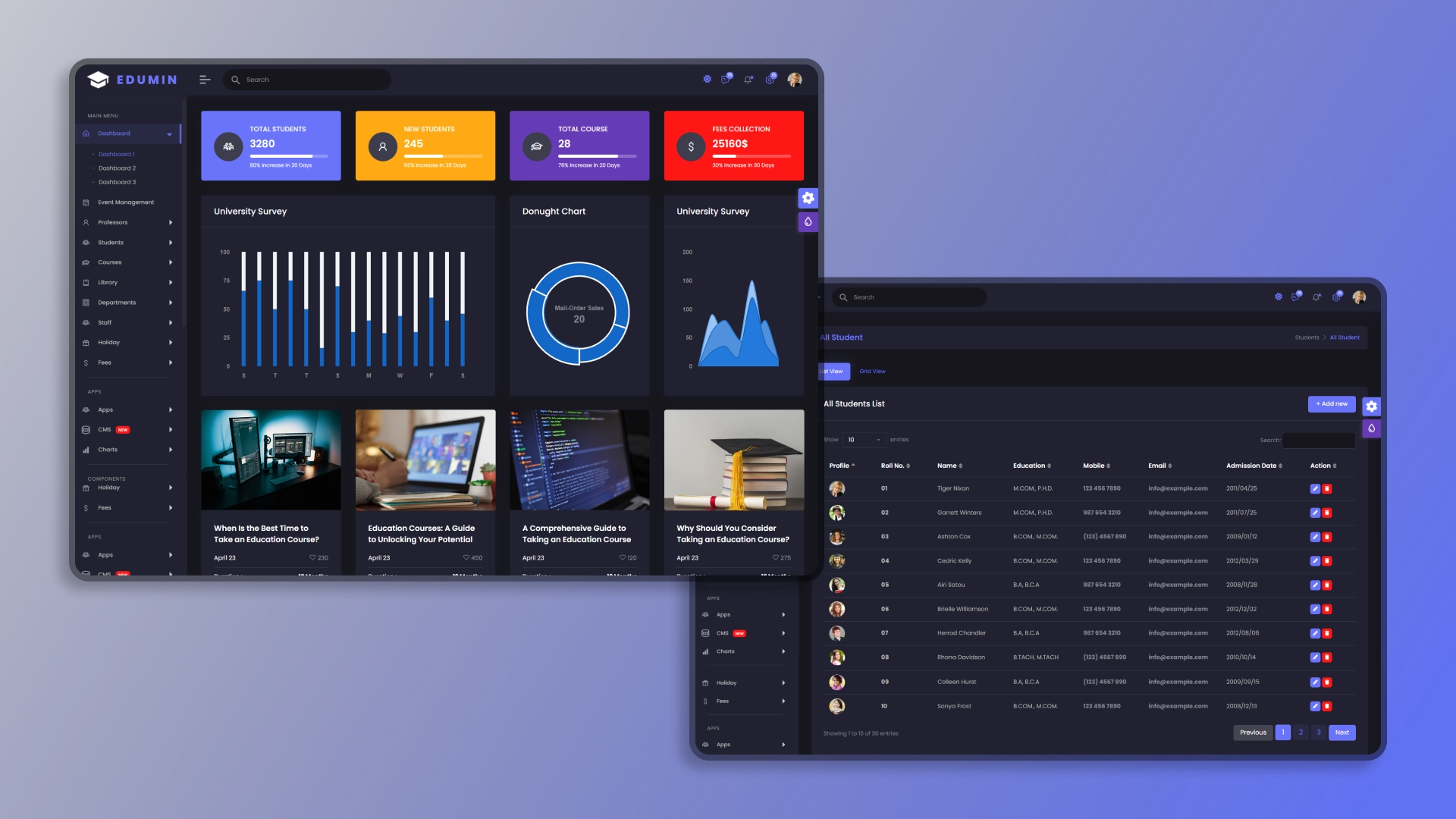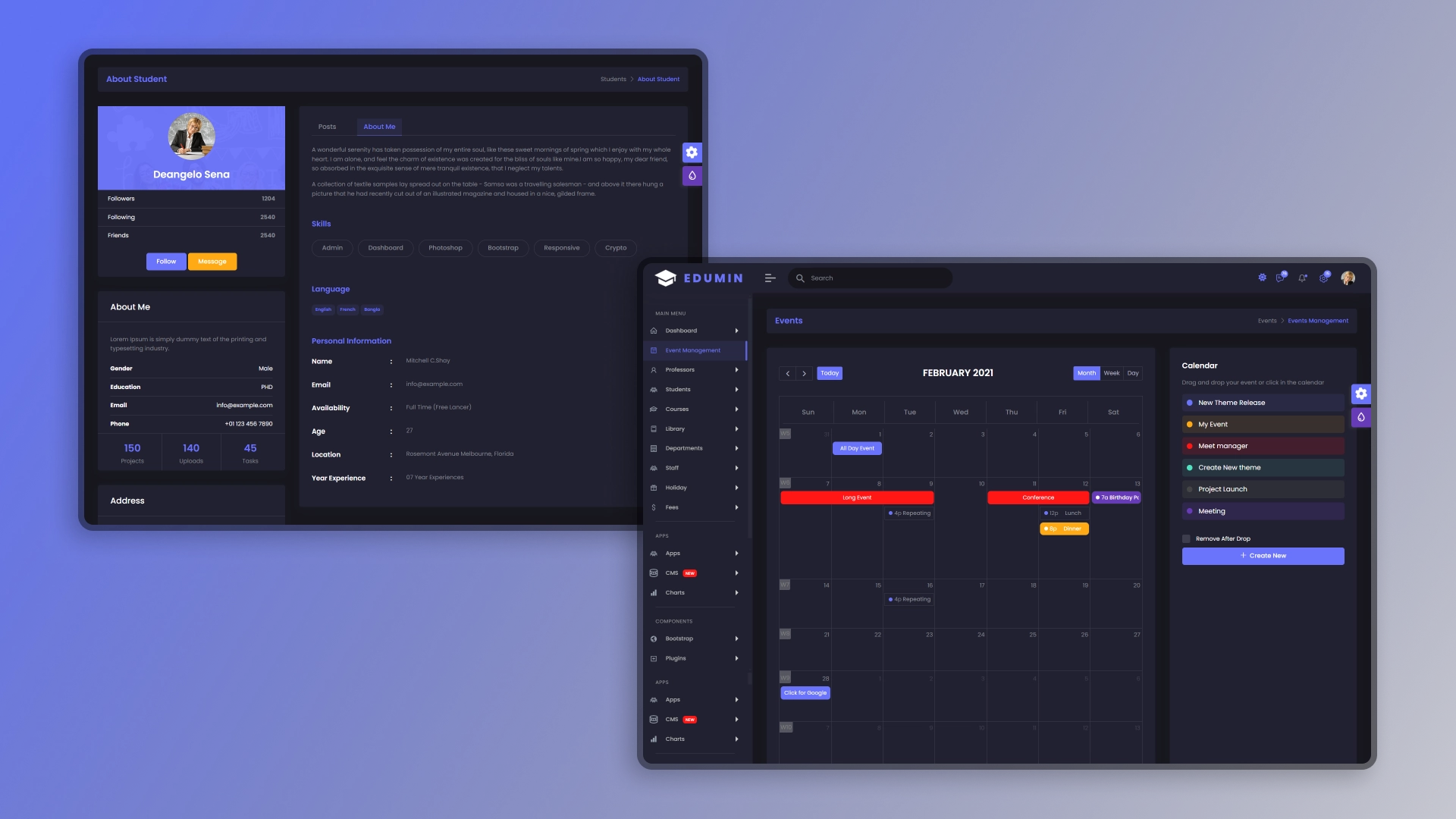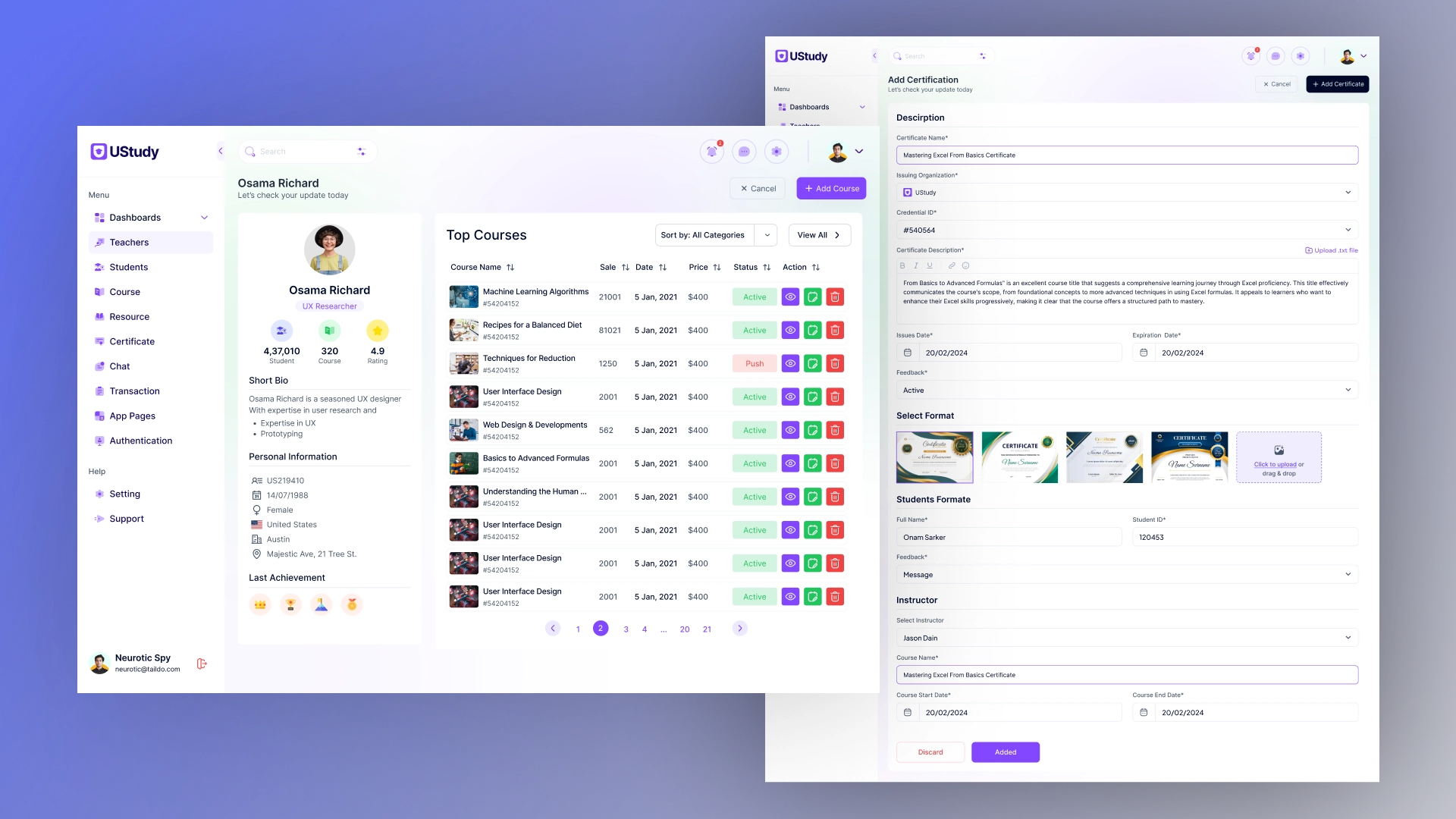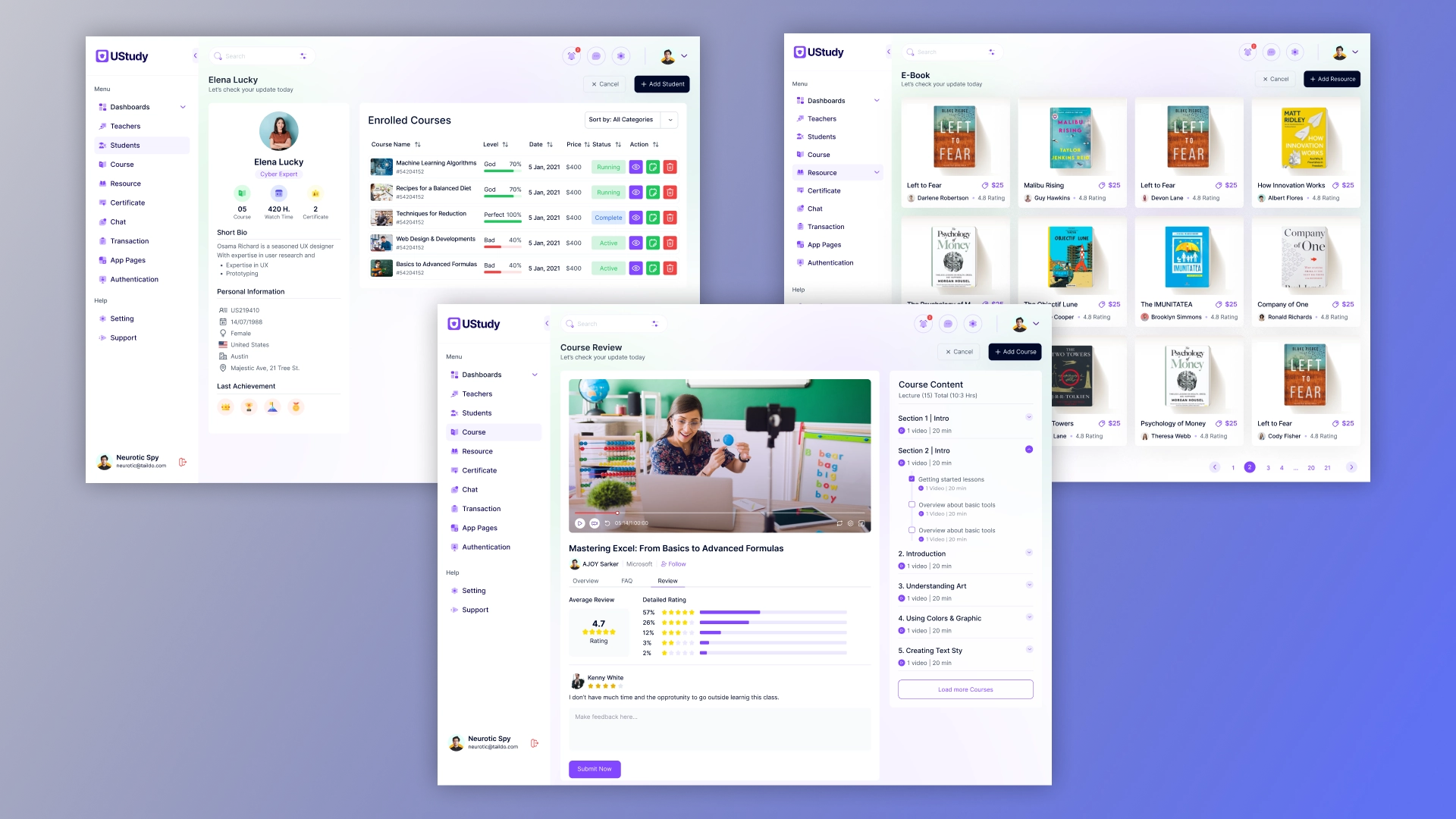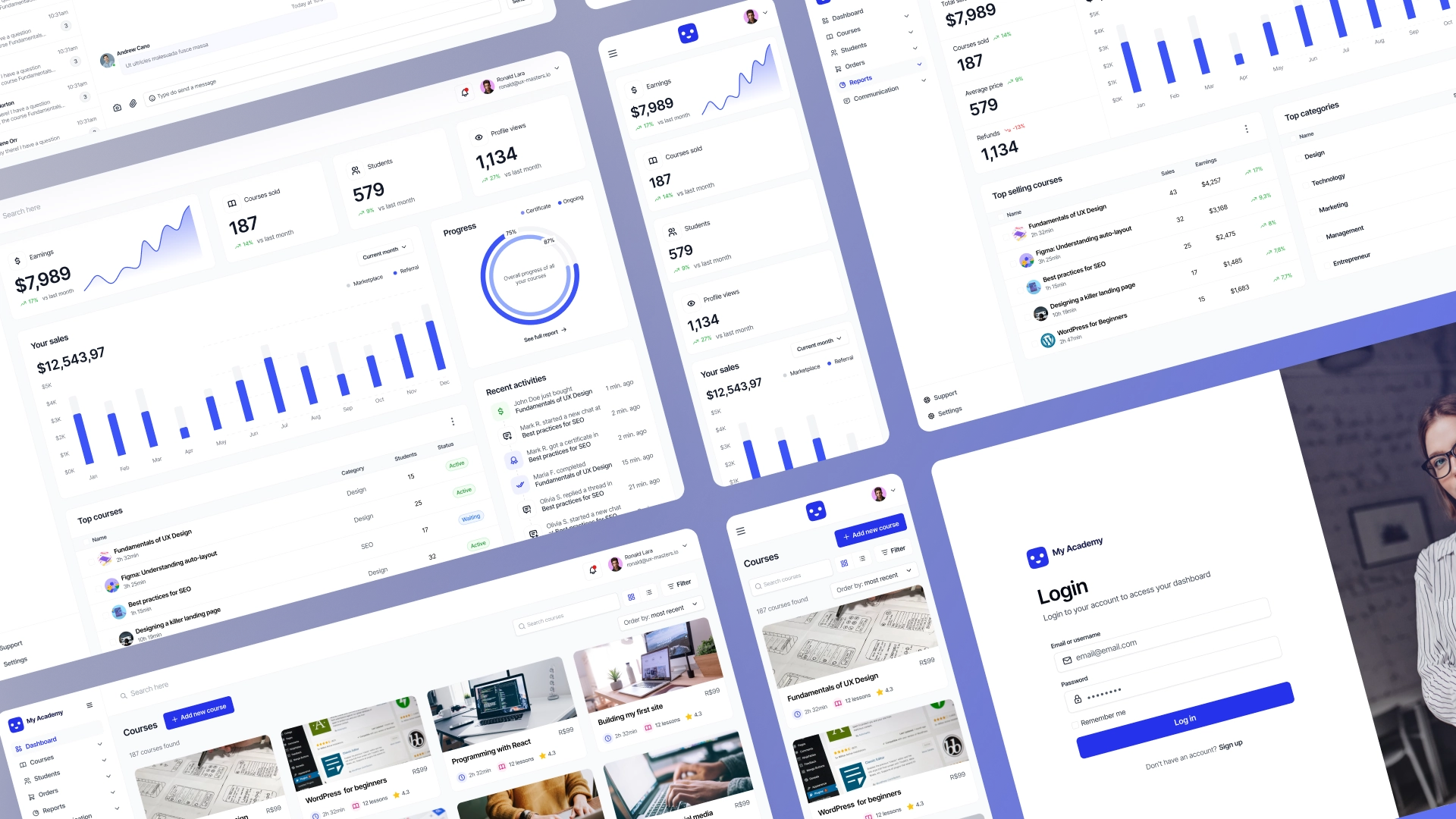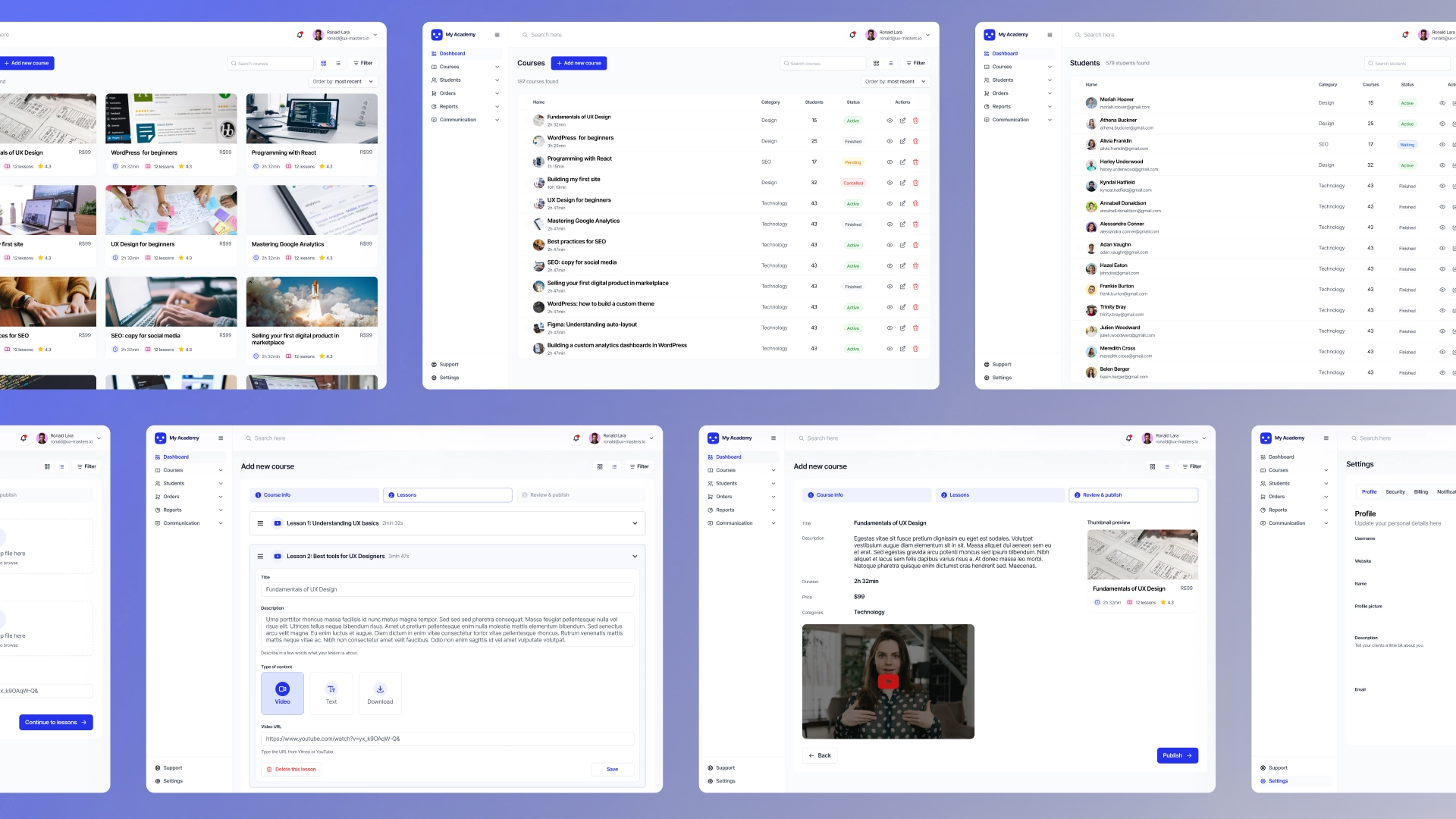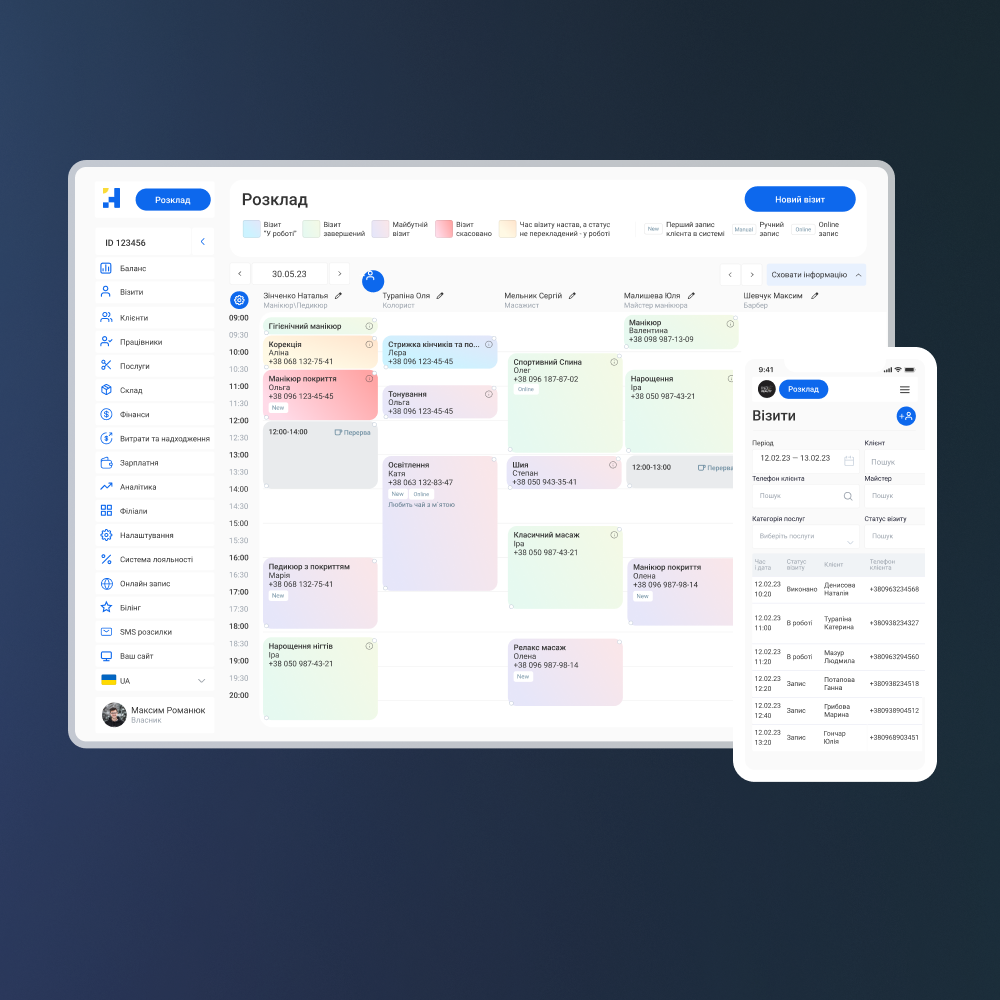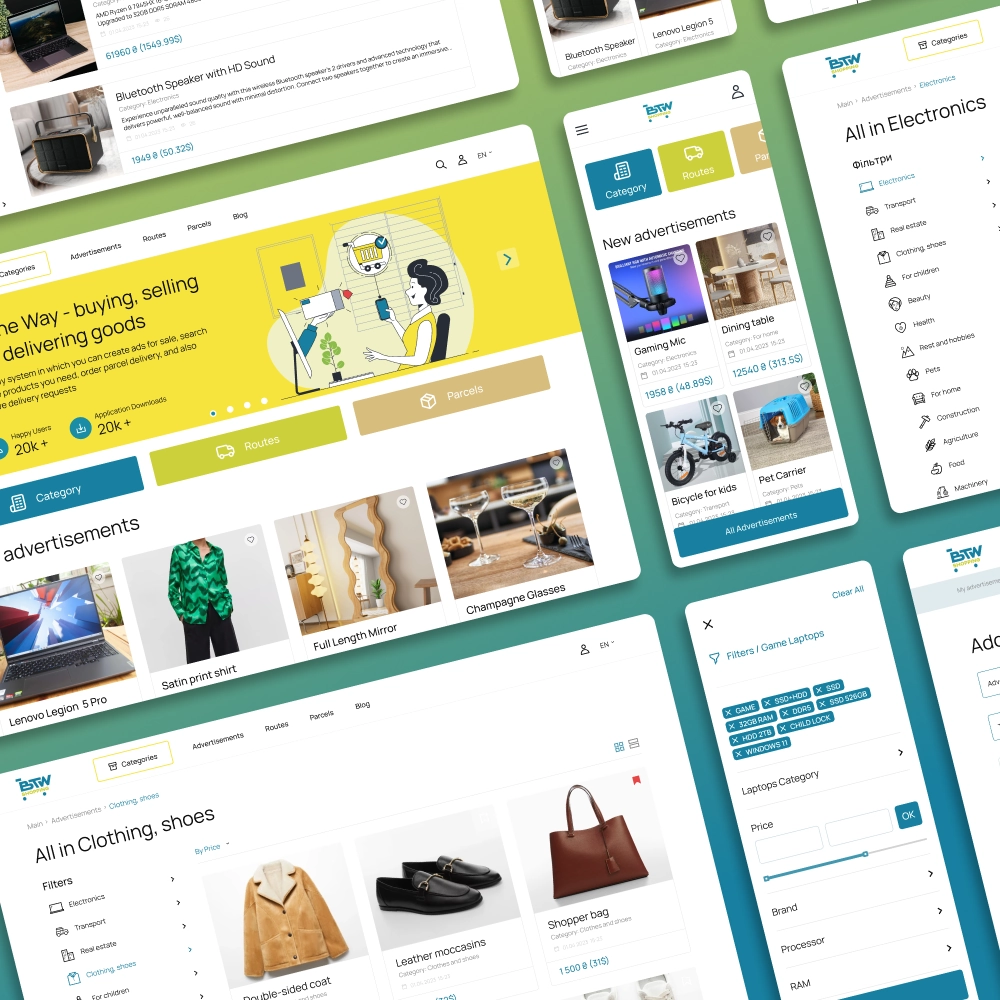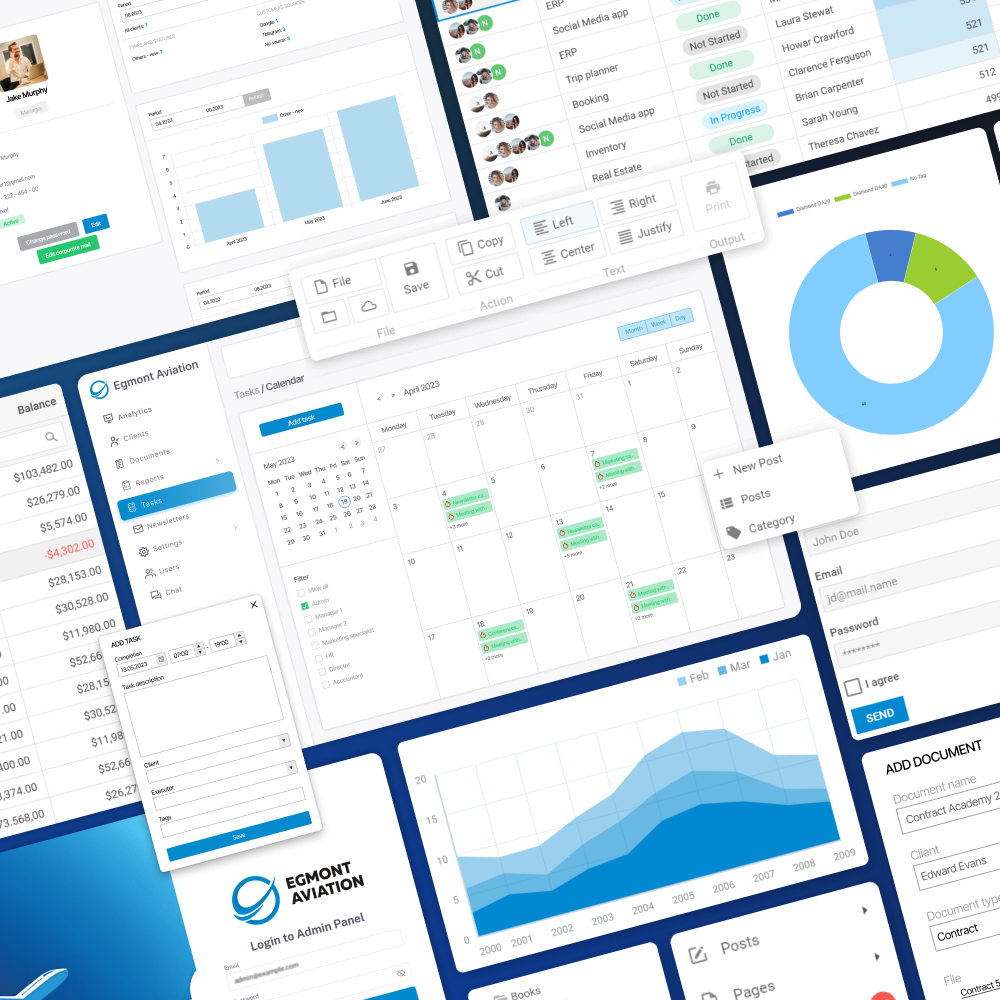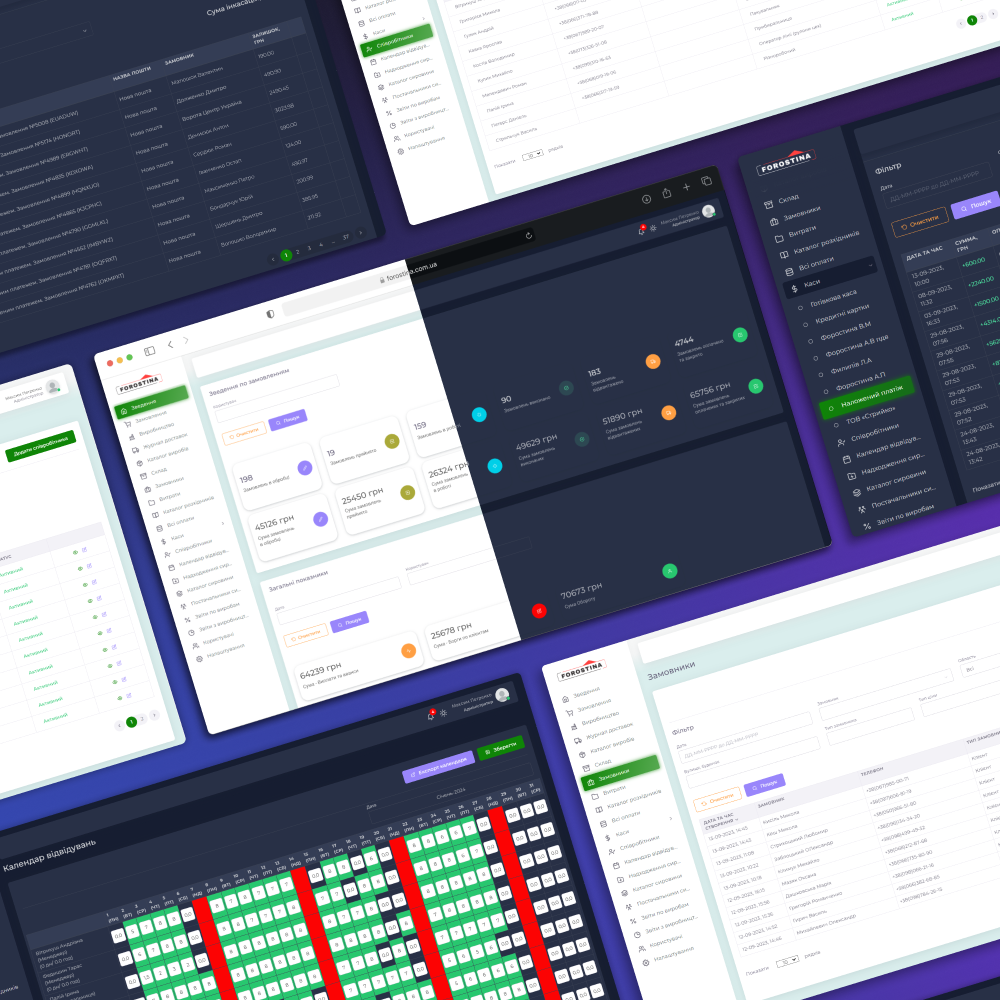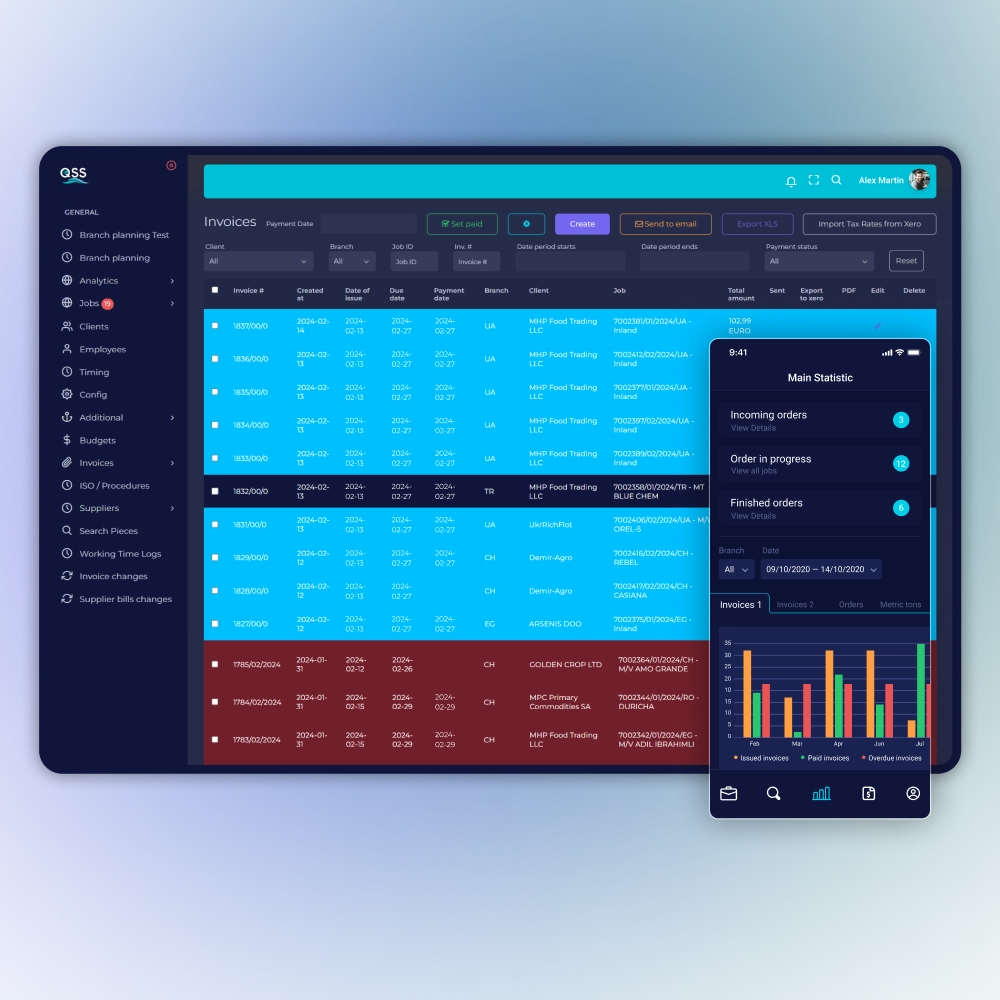









Development of LMS systems for distance learning
Innovative technologies are rapidly changing traditional markets, and the seemingly stagnant education industry is no exception - today you can download an application on a smartphone or laptop and master almost any specialty without leaving your home. The trend has become so popular and in demand that leading world universities and even the corporate segment began to adopt it for training and upgrading the skills of their employees.
It seems that you can build an educational process online using the usual Zoom or Google Meet. But in practice it is not very convenient, because teachers constantly need to create new educational materials and update existing ones, segment students into separate classes, monitor attendance, success and solve many other tasks. Therefore, LMS systems (Learning Management System) — specialized educational management platforms — are usually used for effective online training.
Functionality and interactive capabilities of LMS software help students learn new material faster, thanks to which the effectiveness of learning increases significantly. On the other hand, in order to build an educational process using an LMS, a company does not need to rent a building, take care of housing students or hire a large bureaucratic and teaching apparatus, as well as pay the associated overhead costs. Learning takes place remotely, directly on a laptop or tablet.
Cloud LMS have become one of the main trends of recent years. They provide access to the platform through a browser without the need to install additional software on the user's device. Plus, such systems provide maximum security and flexibility as they back up data, prevent unauthorized access to materials and provide centralized updates.
If you are planning to launch online learning using an LMS, you will be faced with a choice - to use a "boxed" system or to develop your own platform that takes into account the individual needs of your company, teachers and students. We talk about the advantages and features of developing a custom LMS below.
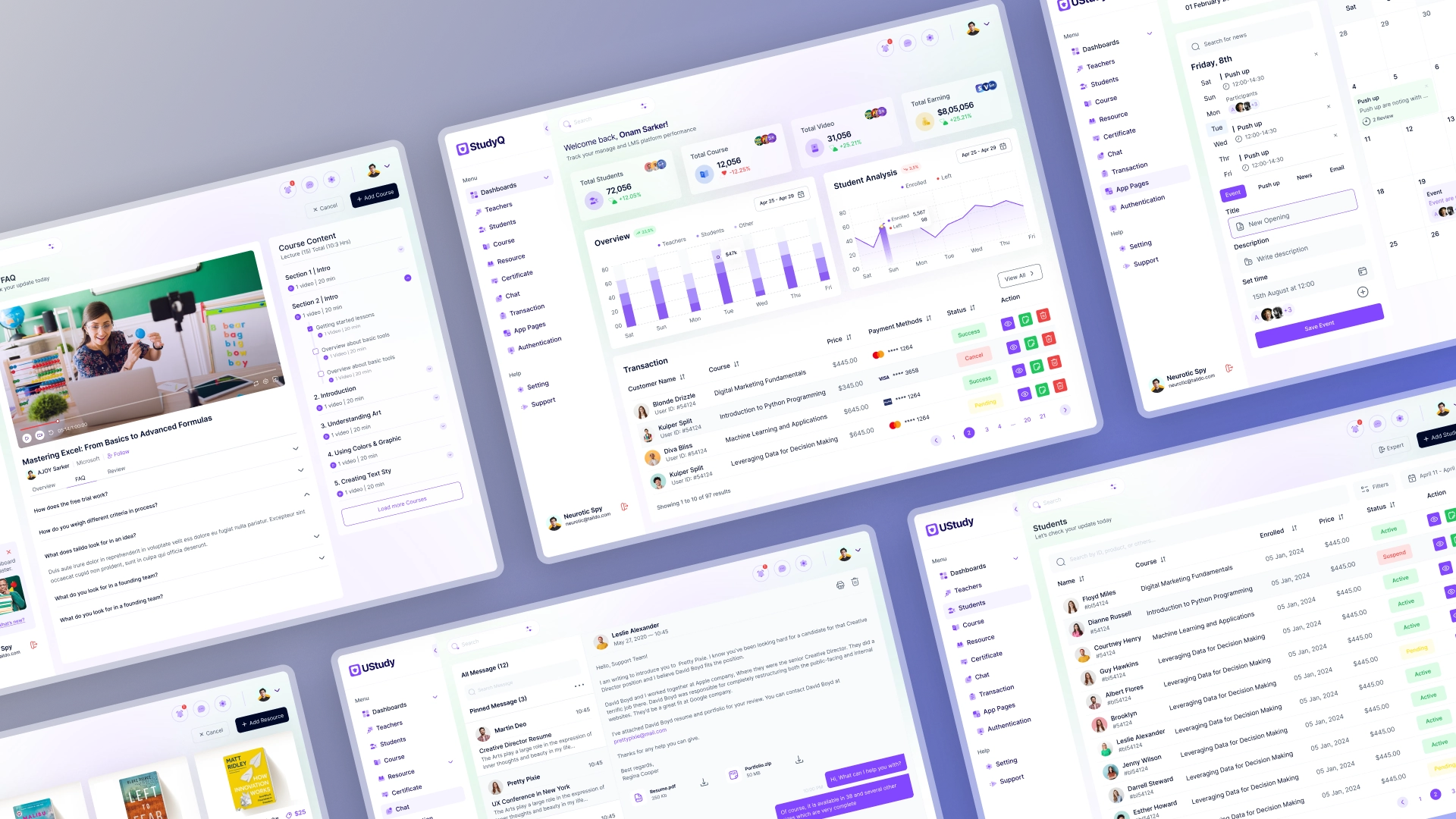
LMS systems: overview of possibilities
The LMS system is an effective tool that simplifies the educational process for both students and teachers. Here are some of its main tasks:
- Organization of online training. Conducting webinars, video lectures and other forms of online education, managing the schedule of classes and providing access to educational materials via the Internet.
- Management of educational content. An LMS allows you to organize and distribute learning materials, modules and courses, ensuring structured and consistent learning.
- Creation of interactive learning. Creation and editing of digital online courses, lectures, online lessons and other educational programs with elements of interactivity, such as videos, surveys, quizzes, etc.
- Restricting access to courses. LMS educational content can be provided individually for each user or a specific group of students, which gives teachers the opportunity to organize "virtual classrooms" for group lessons.
- Monitoring student progress and evaluating their work. Conducting tests, exams and other forms of assessment of students, with the possibility of their automatic or manual checking and issuing of grades.
- Analysis of training data. The LMS collects real-time learning and performance analytics, as well as student feedback. This allows you to analyze and optimize educational materials, increase their effectiveness and improve the user experience.
5 reasons to use an LMS
LMS systems offer a completely new, more technological approach to the educational process. They widely use various interactive elements, gamification, capabilities of artificial intelligence, AR and VR technologies, which maximally engages the user and facilitates the assimilation of new knowledge. As a result, the effectiveness of online learning, as well as the satisfaction of students, increase significantly.
Let's consider a few more main advantages of LMS:
- Availability and flexibility. Students can study at a pace and schedule convenient for them, since educational materials are always easily accessible via the Internet.
- Saving time and resources. Automation of learning management reduces the administrative burden on teachers and frees up their time. Accordingly, the company does not need to maintain a large staff of employees to organize an effective training process.
- Personalization of training. LMS allows you to adapt training programs to the individual needs of each user, offering them personal training roadmaps.
- Improved interaction. Built-in tools for communication, such as forums, chats and video conferences, create the effect of personal presence and ensure effective live interaction between students and teachers.
- Convenience of administration. LMS offers easy management of courses, users and learning resources through a single platform, as well as the ability to integrate with other systems such as CRM, payment services, etc. This makes it possible to automate many business processes and simplifies company management.
What business needs an LMS system
A learning management system can be useful for companies and organizations from various business areas. Consider the niches for which a functional LMS will be most useful:
- Corporate sector. Internal corporate LMS systems are used for training, professional development and onboarding of personnel. They simplify and standardize the educational process, as well as allow to quickly adapt new employees to work in the company.
- Training companies. LMS is indispensable for online schools, providers of professional courses and training. It allows you to effectively create and sell various types of educational programs, monitor the progress of students and improve the quality of services.
- Schools. LMS makes it possible to completely or partially transfer training in schools and universities to a distance format, which provides flexibility in obtaining professional education.
- Medical institutions. In healthcare, an LMS can be used to train doctors on new treatments, safety compliance, and certification.
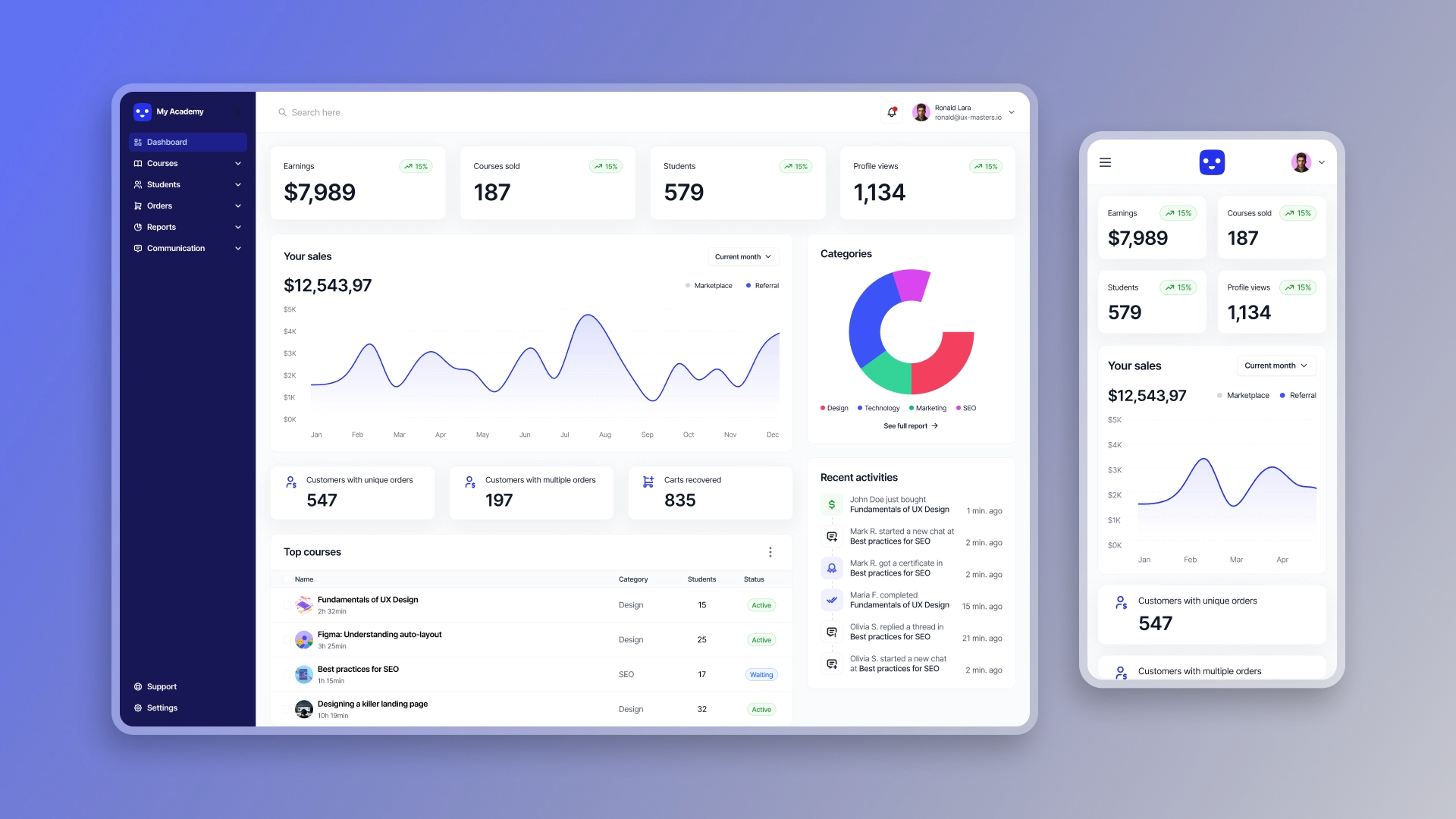
Functionality of the e-learning platform
In order to effectively manage training and provide a quality user experience in education, the LMS system must have a certain set of functions and capabilities. Of course, depending on the individual needs of each company, the functionality of LMS platforms may differ, so we suggest considering a basic set of modules that you absolutely cannot do without.
- Personal office. The LMS platform provides for the interaction of three types of users: students - get an education, teachers - conduct online lessons, create new courses and conduct knowledge testing, administrators - monitor analytics and can participate in solving problematic issues. Accordingly, when implementing the learning management system, it is necessary to create a separate profile for each type of user with appropriate access rights.
- Reporting system. A module for collecting data on the success of students and the effectiveness of educational materials. Its main task is to provide administrators and company management with up-to-date analytical information to improve the quality of services.
- Course designer. Built-in platform for creating and editing educational materials, with the possibility of adding various interactive elements. It is important that the course designer is as convenient and understandable as possible for teachers.
- Test constructor. A tool for creating various types of tests, surveys and quizzes that allow you to monitor the level of knowledge of students.
- Forums, chats and video conferences. A module that provides interaction between students and teachers in real time, and also helps in solving organizational issues with administrators and technical support of the platform.
- Calendar of courses. Planner for tracking tasks, deadlines and important dates.
What stages does the development of LMS systems at AVADA MEDIA consist of?
The technical implementation of the LMS platform at AVADA MEDIA consists of several key stages, each of which is aimed at creating a functional and effective solution for distance learning. Let's consider the main stages of this process:
- Business analytics. Studying the business and client requirements, analyzing the project's target audience and setting LMS goals.
- Development of the technical task. Creation of tasks for technical specialists, which are the basis of further implementation of the product.
- Creation of UX architecture. At this stage, a functional prototype of the future LMS is being developed, which includes the architecture of the product and its components, the establishment of a logical connection between them and the formation of a positive user experience. Also, during UX implementation, warframes of the interface pages are drawn, and the final result is presented to the client, in particular with the help of video explanations.
- Rating. After the approval of the TOR and the prototype, the calculation of the LMS development time in the clock and project budget is performed. At AVADA MEDIA, we provide the client with an exact implementation cost that remains unchanged unless you have additional ideas or wishes during development.
- UI design. Designing a model of user behavior — students, teachers, administrators and creating a comfortable graphical interface that meets their expectations and covers functional needs.
- Development of system functionality. According to the approved technical task, Front-end and Back-end developers implement the LMS at the code level and perform all necessary integrations with external systems, such as ERP, CRM and others.
- Testing. QA engineers conduct thorough testing of the LMS, covering all functional and non-functional components of the system, as well as its resistance to high loads. Special attention is paid to security testing to make it impossible for the product to be vulnerable to various types of cyber-attacks and unauthorized access to data. The result of this stage is a fully configured and ready-to-release LMS build.
- Personnel training. When the system is fully tested and ready for commissioning, AVADA MEDIA specialists train the client's staff using the new software and provide all the necessary instructions. Thanks to this, the transition to a new LMS for your company will be as comfortable and fast as possible.
- Release. The training management system is placed on a public server, integrated into the business processes of the client's company and becomes available for use. If, in addition to the browser LMS, a mobile version of the product for IOS and Android was also developed, the applications are published in the Appstore and PlayMarket.
- Technical support and development. After the completion of the development, our team can provide qualified technical support for the new LMS, which includes eliminating any problems in the system, developing functionality, improving the interface and user experience, as well as updating security protocols to reliably protect the platform from cyber attacks and unauthorized access to materials .
What technology stack do we use?
For the technical implementation of LMS-platforms, our team uses the most modern and advanced technologies that allow us to realize any innovative ideas of the client and ensure high functionality of the system.
We usually build the development of the web version of the LMS on HTML, CSS, JavaScript or Vue.js and React.js frameworks – if we talk about the frontend part. For the backend, we can use the languages PHP, Python, Java or their frameworks, depending on the features and technical characteristics of the project.
Also, our team can additionally implement a mobile version of the LMS, which will be fully integrated with the browser system and provide users with maximum comfort when working from mobile devices on IOS and Android. To develop the program, we can use native Swift/Kotlin technologies or the cross-platform Flutter framework, which in its capabilities is practically not inferior to them.
Why you should order LMS development from AVADA MEDIA
AVADA MEDIA has extensive experience in developing innovative learning management systems for various business purposes: internal corporate LMS for staff training, systems for conducting webinars, learning foreign languages, and many others. We constantly improve and update existing and acquired knowledge, including thanks to feedback from previous clients, and then implement our advanced skills in new projects.
In order to develop the most effective and functional product, our team pays special attention to the design stage - the client receives not just technical language and difficult-to-understand TOR, but an interactive LMS prototype, which allows you to evaluate all the possibilities of the future system even before the start of its development: UX, navigation, location of UI elements, logic of modules and functions. With this approach, the client immediately understands how his platform will look and work, can make additional adjustments at the early stages, and ultimately receives a predicted final result that fully meets his expectations.
A Project Manager is assigned to each project. On the one hand, he organizes the work of the technical team, and on the other hand, he maintains regular communication with the client: every week he demonstrates the results of the work performed, collects feedback, helps in solving problems and comments. Therefore, the implementation of the LMS takes place under your full control, and new ideas and wishes are implemented instantly - at the current stage of development.
If you would like the AVADA MEDIA team to engage in the technical development of an LMS for your company, please fill out the form below. In the near future, we will contact you, discuss the task and select the best technical solution.


